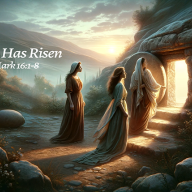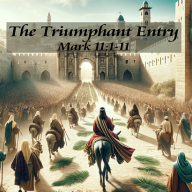Bible Study

Bible study is pivotal for deepening one's understanding of God's Word, acting as a vital channel through which individuals can forge a closer relationship with God. It's through the diligent study of Scripture that believers are able to hear God's voice, discern His will, and grasp the depths of His love and grace. This spiritual discipline does more than provide knowledge; it transforms hearts and minds, enabling followers of Christ to see the world through a divine lens. As believers immerse themselves in the Bible, they encounter God's character, His promises, and His instructions for living. This continuous engagement not only nurtures their spiritual growth but also empowers them to embody the teachings of Jesus in their daily lives, fostering a profound, personal connection with the Creator.
Additionally, Bible study is crucial for living out God's call on our lives. Scripture is replete with examples of God's guidance, commandments, and the principles for a righteous life that pleases Him. By studying the Bible, believers gain insight into how they can apply these timeless truths in contemporary contexts, navigating life's challenges with wisdom and integrity. It equips them with the spiritual armor necessary to withstand the trials and temptations of the world, while also inspiring them to act justly, love mercy, and walk humbly with God (Micah 6:8). In essence, regular Bible study is not just an academic exercise; it's a transformative experience that molds individuals into the likeness of Christ, enabling them to live out their divine purpose and impact the world around them with the love and grace of God.
When possible, I will include the study that I do for each sermon including a verse-by-verse commentary, background information for the text, and an explanation of the text through a Wesleyan lens. While studying the Bible is imperative for any Christian who takes their faith and calling seriously, my focus is on Methodists understanding what they believe from a Wesleyan perspective. Because of this, the Wesleyan section will often contain components of the Wesleyan Quadrilateral.
The Wesleyan Quadrilateral is a methodological concept within Christian theology that articulates how Christians come to understand their faith and  theological positions. Attributed to John Wesley, the founder of Methodism, though not explicitly named by him, this framework proposes four primary sources or criteria for theological reflection: Scripture, Tradition, Reason, and Experience.
theological positions. Attributed to John Wesley, the founder of Methodism, though not explicitly named by him, this framework proposes four primary sources or criteria for theological reflection: Scripture, Tradition, Reason, and Experience.
Scripture: Wesley considered Scripture the primary source of theological authority. For him, the Bible was the foundation upon which Christians should build their understanding of God, salvation, and ethics.
Tradition: This refers to the historical continuity of the church's teachings and practices. For Wesley, tradition provided a lens through which Scripture could be interpreted, offering insights from past theological reflections and ecclesiastical councils.
Reason: Wesley did not see reason as opposed to faith. Instead, he believed that reason, including logic and critical thinking, was a gift from God that could help interpret Scripture and apply it to contemporary contexts.
Experience: Lastly, Wesley valued personal and communal experiences of the Holy Spirit as a source of understanding God's presence and action in the world. This includes how one's personal faith journey and the transformative effects of the Gospel in one’s life inform one’s understanding of God.
The Wesleyan Quadrilateral provides a balanced approach to understanding Christian faith, emphasizing that while Scripture is of primary importance, tradition, reason, and experience play critical roles in shaping a robust and lived theology. This approach encourages an engaged and thoughtful faith that is both rooted in history and responsive to contemporary challenges and insights.




